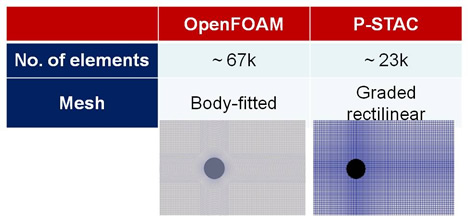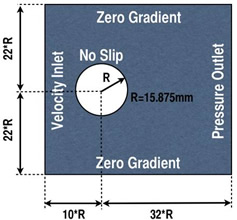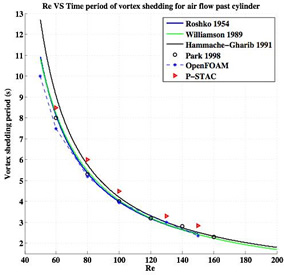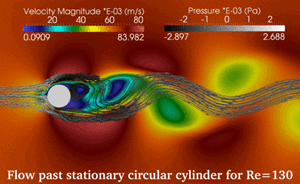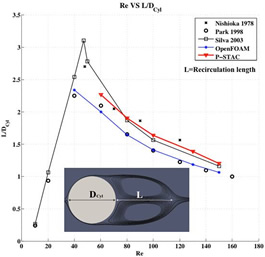|
Particle-Surface Tribology Analysis Code (P-STAC): �High-Performance Computing Tribology and �Multiphase CFD Computing�
| The Carnegie Mellon Particle-Surface Tribology Analysis Code (P-STAC) developed by Particle Flow and Tribology Lab (PFTL) is an in-house multi-physics C++ code which captures the physics of the fluid and particle dynamics coupled with the motion of solids. It can simultaneously work at the levels of particles and macro solids. It solves the transient, 3D Navier-Stokes equations, using an efficient, meshing scheme for complex geometries. This helps to exploit the ease/simplicity of calculations and efficiently deal with complex solid geometries (e.g., the drill-bit) without complex meshing. The post-processed results, generated from P-STAC's data, are shown. |
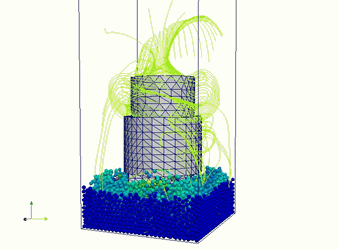
Simulation of Particle-Fluid-Surface-Interaction during Rock Drilling
|
| PFTL Research Assistant(s): |
|
Jeremiah N. Mpagazehe; Prathamesh S. Desai� |
| Method(s) Employed: |
|
Computational Fluid Dynamics (CFD),
Particle Dynamics (PD), Particle-Fluid-Surface Interaction (PFSI)� |
| Rig(s) and/or Software(s) Employed: |
|
C++� |
| Sponsor(s): |
|
National Science Foundation (NSF), National Aeronautics and Space Administration (NASA), Alfred P. Sloan Foundation |
Sample Results:
Select PFTL References:
Mpagazehe, J.N., Queiruga, A.F., Higgs III, C.F., 2013, "Towards an understanding of the drilling process for fossil fuel energy: A continuum discrete approach" Tribology International, 59, pp. 273-283.
Mpagazehe, J.N., Higgs III, C.F., 2013, "A three-dimensional transient model to predict interfacial phenomena during chemical mechanical polishing using computational fluid dynamics." Proceedings of the Institution of Mechanical Engineers, Part J: Journal of Engineering Tribology, 227.7, pp. 777-786.
PFTL PhD Thesis:
Mpagazehe, J.N., 2013, "A Physics-based, Eulerian-Lagrangian Computational Modeling Framework to Predict Particle Flow and Tribology Phenomena", Doctoral Thesis , Carnegie Mellon University
|





